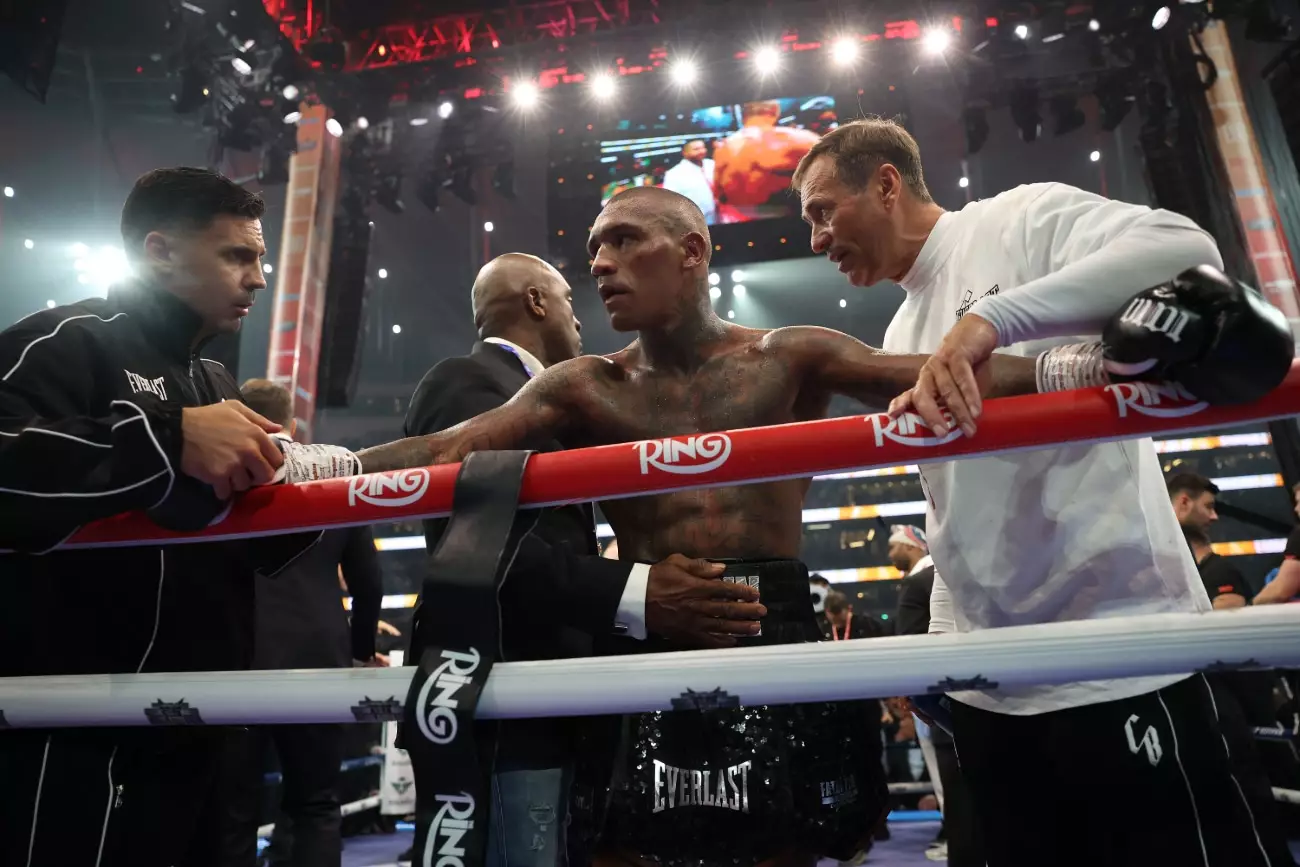Eddie Hearn’s post-fight enthusiasm for Conor Benn might seem misplaced at first glance; after all, the young fighter walked away from his bout with Chris Eubank Jr. as the loser in a unanimous decision. Yet Hearn’s assertion that Benn is on the cusp of “superstar” status within the UK boxing realm is an intriguing premise. In an age where fighters are often defined by their win-loss records, Benn’s resilience and ability to captivate audiences—even in defeat—hold significant weight. Hearn’s perspective goes beyond basic boxing analytics, suggesting that a fighter’s narrative arc, including overcoming adversity, can carve out a more compelling public persona.
However, it’s essential to scrutinize how “superstar” status is achieved in the cutthroat world of professional sports. In the modern sports climate, celebrity often hinges on more than prowess in the ring; factors such as marketability, relatability, and an engaging storyline substantially enhance a fighter’s appeal. For Benn, his bout against an established, albeit older, opponent like Eubank Jr. provided a platform, and Hearn believes that the performance has positioned Benn as a potential crowd-drawer in the not-so-distant future. But does a superstar truly emerge from merely failing to defeat a declining opponent? It invites a deeper exploration of boxing as both a sport and a spectacle.
The Fight: Analyzing the Action
Benn’s bout against Eubank Jr. was marked by early promise, where, for a fleeting three rounds, he demonstrated potential to challenge the seasoned, career British fighter. However, once Eubank Jr. adapted to Benn’s style, it was as if the tide had turned irreversibly. The resulting decision—116-112 across the board—might seem gracious to those who witnessed what unfolded. Through bouts of excitement in those opening rounds, the subsequent nine rounds illustrated Eubank’s dominance, rendering the idea of a close contest almost laughable. Social media discussions almost unanimously dismissed any notion that Benn was even in contention for a victory, underscoring a uniform consensus of the bout’s true nature.
Herein lies the risk for Hearn’s excitement: could this push for Benn’s “superstar” reputation be more a reflection of hope than reality? On surface analysis, it feels as if Hearn painted a draped veneer of heroism over a fighter who, while possessing talent, still exhibits concerning vulnerabilities that become pronounced when facing more formidable opponents. Benn may have remained upright for all 12 rounds, but what does it say about his readiness to challenge in higher weight classes? Eubank Jr.’s performance may have ultimately exposed gaps in Benn’s skill set—issues that could be fatal when set against bona fide world champions at 147 and 154 pounds.
Future Paths: The Debate on Rematch and Strategy
While Hearn’s emphatic declarations urge the boxing audience to stay optimistic about Benn’s future, the pressing question remains: What’s the best path forward? Hearn appears torn between advocating for a rematch with Eubank Jr. or taking a step back to allow Benn to regroup without risking further damage. The thought of a rematch, while undoubtedly enticing in terms of drawing crowds and media attention, pokes at the potential of further jeopardizing Benn’s health and career longevity.
This dilemma calls into question the ethics of promoting fights that might expose fighters to undue harm. Hearn may believe in Benn’s resilience; however, it’s crucial to assess whether throwing him back into the ring to avenge a loss is the most prudent course of action. The consequences of overextending oneself in a competitive sport like boxing can resonate far beyond the prizefighting arena, making this decision an intricate balancing act between ambition, safety, and business acumen.
In the wake of facing a formidable opponent and coming out with newfound notoriety, the next steps must not only consider Benn’s immediate prospects but also his long-term potential for greatness. Hearn’s vision of filling arenas might reignite excitement around Benn, but that shouldn’t overshadow the importance of defining clear, sound strategies that promote both his growth as a fighter and the integrity of the sport itself. Meanwhile, while fans yearn for dramatic rematches and compelling narratives, the responsibility lies with promoters to ensure the fighters’ safety and viability are not sacrificed in the pursuit of entertainment.

